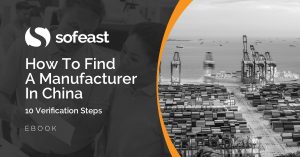 Many people think the ISO 9001 standard is pretty generic is applicable to all industries (that’s mostly correct), so a good auditor can check any type of business when performing ISO 9001 audits (I don’t agree with that).
Many people think the ISO 9001 standard is pretty generic is applicable to all industries (that’s mostly correct), so a good auditor can check any type of business when performing ISO 9001 audits (I don’t agree with that).
And the ISO 19011 standard, which provides guidelines for auditors and auditor management, contains this often-overlooked clause:
If all the necessary competence is not covered by the auditors in the audit team, technical experts with additional competence should be included in the team.
For clause 7 of ISO 9001, and particularly sub-clauses 7.3 (design & development) and 7.5 (provision of product/service), it is important that the auditor be familiar with the industry and with the production processes.
Here are a few examples that outline my point:
- Retention of production records of 3 years is not appropriate for construction services, but it probably is for dairy products.
- A restaurant owner can call his usual suppliers and place orders without causing concerns, while a food manufacturer should probably send written information with details.
- Let’s say a garment manufacturer’s quality is very good. But the owner sets a target that is impossible to achieve (very close to zero defects), to have an impact on his staff’s mentality. And the company does not set actions to try to improve. Should an auditor consider this as a non-conformance? Probably not — provided the auditor knows that the target is extremely high for this industry.
I can see three reasons why auditors should be familiar with the industry and processes when performing ISO 9001 audits (otherwise they should bring an expert with them):
- Knowledge of industry-specific common practices and general expectations, to understand what practices are actually suitable (as long as they don’t directly contradict the ISO 9001 requirements).
- Understanding of risks, so that the auditor evaluates the impact on quality of the issues he raises, and to focus the auditor’s time where the highest risks are.
- The auditor needs to understand if corrective & preventive actions really addressed root causes(s). Addressing only a direct cause is not acceptable as per ISO 9001.
What do you think?
Are you trying to find a manufacturer in China who is well-suited to your needs and can also deliver on their promises?
Sofeast has developed 10 verification steps to help importers find the right manufacturing partner in China. They’re shared in this FREE eBook: “How To Find A Manufacturer In China: 10 Verification Steps.”
It covers:
- Background checks
- Manufacturing capabilities
- Quality system auditing
- Engineering resources
- Pricing, negotiation, & contracts
- …and much, much more
Just hit the button below to get your copy and put yourself in a great position to get better results from Chinese manufacturers who supply your products:

